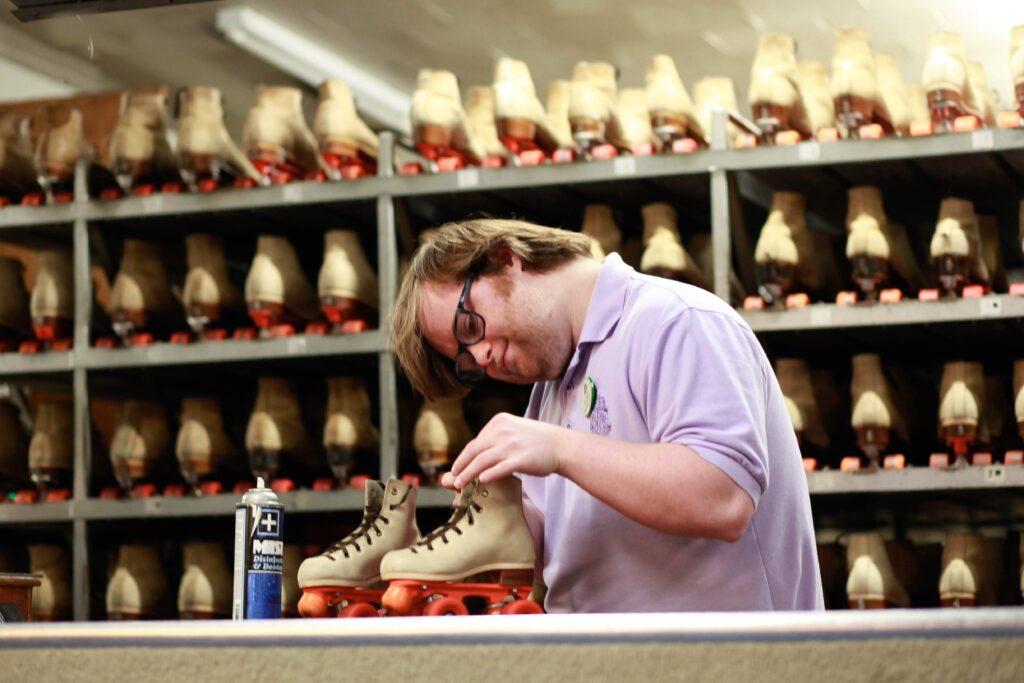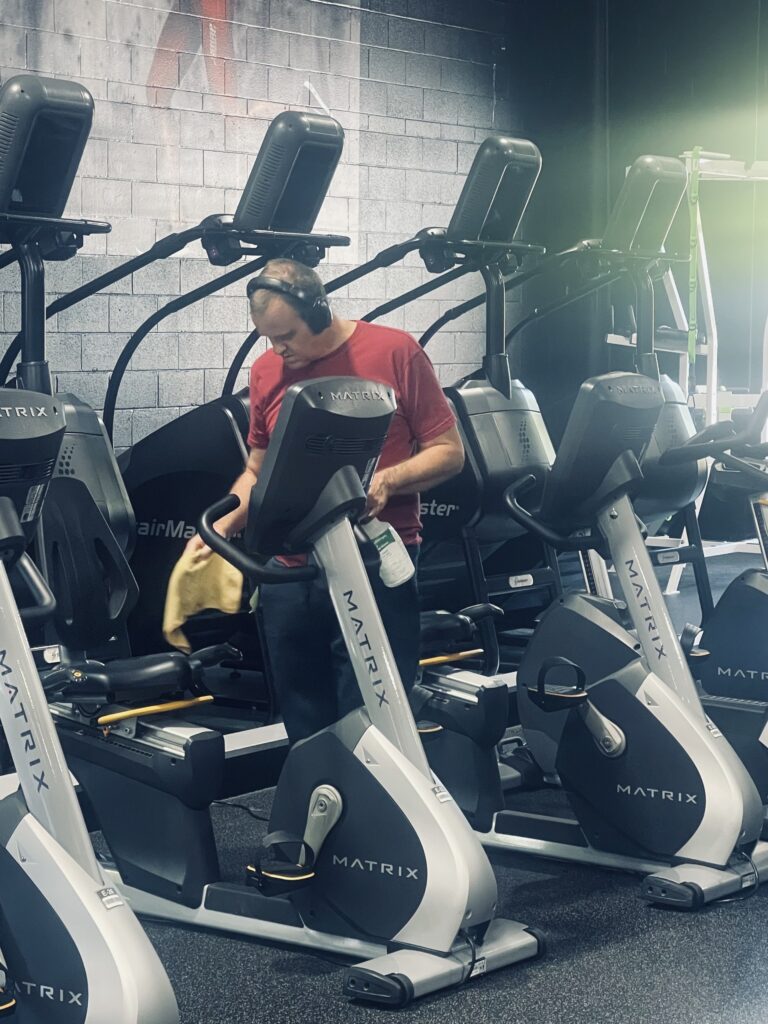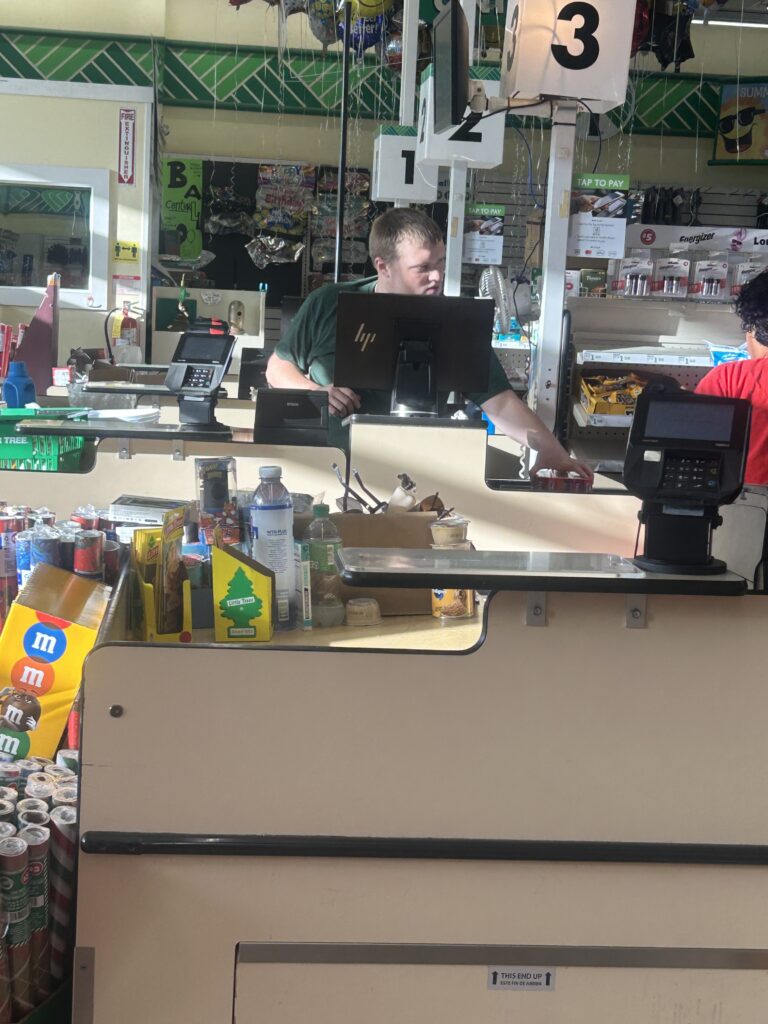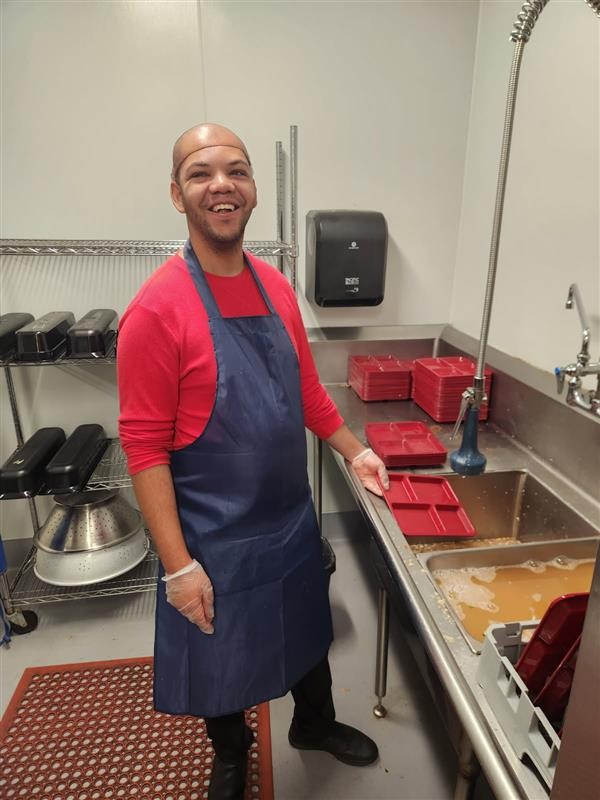Explore the ALSO Children’s Homes Wishlist and help fill the season with joy for the children supported by ALSO.
Explore the ALSO Children’s Homes Wishlist and help fill the season with joy for the children supported by ALSO.

October 2025 marks the 80th annual observance of National Disability Employment Awareness Month (NDEAM). At ALSO, we celebrate NDEAM by shining a bright and appreciative spotlight on the many contributions that people with intellectual and developmental disabilities (I/DD) make to America’s workforce. Along with that, we raise public awareness of how we can continue to work together to improve meaningful and well-paying job opportunities for individuals living with I/DD.
First initiated in 1945 as a week-long observance, it was expanded to a full month beginning in 1988. The NDEAM theme for 2025 is “Celebrating Value and Talent,” emphasizing that it’s not just a matter of being compassionate towards the needs of people with disabilities for high-quality employment opportunities. But it’s also a firm acknowledgment that everyone has different abilities, and therefore plays an important role in an innovative and productive workforce.
In this blog, the team at ALSO describes how meaningful employment leads to incredible benefits for those we support with developmental and intellectual disabilities. We’ll also talk about:
For people with disabilities, meaningful employment is integral to greater self-esteem, improved mental health, dignity, and increased financial independence. A steady stream of income allows for greater economic empowerment, allowing individuals with disabilities to meet basic needs and have more control over personal affairs — all leading to increased autonomy.
At the workplace, individuals experience greater social inclusion as they connect and build relationships with coworkers of different ability levels. Another great benefit is the opportunity to learn new skills that lead to further career advancement.

Take Andrew. At Snap Fitness in Gresham, the hum of treadmills and the clank of weights are part of Andrew’s daily rhythm. Nearly a year into his role as janitor, he’s become the quiet heartbeat of the gym—his mop, rag, and steady dedication turning every corner into a space that feels cared for. “Every time I come in, the gym is immaculate,” one member says. “Andrew’s work doesn’t go unnoticed—he’s a big part of why this place feels comfortable and safe for all of us.”
Andrew’s pride in his work shines through in the spotless mirrors, the polished floors, and the sanitized machines ready for every workout. “Thanks to Andrew, I know the equipment is clean and ready whenever I show up,” another member shares. More than just maintaining cleanliness, Andrew’s consistency builds trust and community—reminding everyone that a welcoming gym isn’t just about fitness, but about the people who make it shine.
LEARN MORE: Supported Employment Services: Empowering Individuals with Disabilities in the Workplace.
When job seekers (including those with disabilities) have increased financial security, it reduces reliance on public funds for disability benefits. Another important point is that about 26% of our country’s adult population has some kind of disability. Therefore, they represent a large part of the consumer market. It’s a huge benefit to the economy to include this population in the labor market so that they can, in turn, put money back into the economy and broaden the tax base.
According to the US Department of Labor (USDOL), companies that lead in disability employment practices have demonstrated the following benefits over a four-year period:
Those are some great stats!
By accessing this underutilized talent pool of qualified individuals, smart companies have opened themselves up to increased workforce inclusion, innovation, lower turnover, and greater employee loyalty. They also acquire a public reputation contributing to social equity and inclusive economic growth.
LEARN MORE: US Chamber of Commerce Employer Guide To Tax Credits For Hiring Employees With Disabilities
Individuals with I/DD contend with multiple barriers as they strive to be included in the workforce. When it comes to disability, several preconceived notions kick in to perpetuate a stigma, or social attitude that affects job seekers, coworkers, and employers. This contributes to stubbornly high unemployment rates. Here are just a few of those common myths.
If not successfully addressed by organizational leadership, these erroneous notions interfere with the hiring process, job training, and company culture.
Despite the passing of the Americans with Disabilities Act and other regulations, structural barriers may also interfere with employment:
Other barriers include simply a lack of knowledge. Many employers, even though they may be willing to hire people with disabilities, find themselves unprepared to build a diverse workforce. A perfect example of this is a misalignment between standard hiring practices and the diverse abilities of many job applicants.
Here’s excellent news from the ALSO team: Those barriers and misconceptions are easily solvable with the help of high-quality supported employment programs and the application of inclusive best practices in employee and career development.

At the root of supported employment is the belief that most individuals who desire paid employment can get it as long as the right supports are in place. It’s an individualized, person-centered approach that capitalizes on the unique strengths, abilities and goals of the job candidate. This is quite different from the sheltered workshops and segregated work settings that pay sub-minimum wage for boring and repetitive tasks.
ALSO supported employment is well-known for establishing respected partnerships between employers, employees, and service providers. Additionally, we have an excellent collaborative relationship with the Oregon Department of Vocational Rehabilitation, and the Department of Health and Human Services.

Our emphasis is on competitive, integrated employment that is inclusive and allows the individual maximum community involvement. We assist those we support at every stage of the employment process, including:
LEARN MORE: Assistive Technology in the Workplace for People with Disabilities.
Advocacy is crucial in helping people with disabilities retain competitive employment. It’s been a long and difficult struggle for our fellow residents with disabilities to become protected from discriminatory workplace practices. Through strong advocacy of human services professionals, politicians, family members, and our partners with disabilities, we’ve made amazing strides in achieving community employment that pays a living wage.
We’ve also changed perceptions of employers, coworkers, and community members about the many contributions people with disabilities have to offer. Several organizations (including federal agencies) have answered the call to provide support and resources for employment equity:
Still, further work must be done to improve disability employment. A federal government program that is striving to correct such inequities in pay and employment rates is “Employment First”, prioritizing inclusive employment over other options (such as segregated employment). It’s based on the premise that all individuals, including those with significant disabilities, are capable of competitive integrated employment.
LEARN MORE: After the Settlement: Oregon’s Efforts to Expand CIE
ALSO’s Supported Employment Services has been instrumental in achieving workplace success for the people we support with I/DD. Our positive outcomes are attributable to the following key features:

Our successful outcomes are largely due to the partnerships we have developed with Oregon employers. Tate Metcalf of Sisters Athletic Club has this to say about ALSO’s Employment Services:
“Employing people who are supported by job coaches has been a game changer for me. The impact on the atmosphere of the club, along with the fact that they do a great job, has made a huge difference in our service and our bottom line.”
Resources abound for employers that wish to foster inclusive employment. In addition to organizations such as JAN, EARN, and ODEP, check out these additional tips.
Many employers use October as a springboard to raise awareness about NDEAM. The USDOL has several ideas for initiatives:
We all know that good jobs create a strong foundation for independent living, community involvement, and financial security. If we want this for ourselves, we should support these benefits for our community members with disabilities. Therefore, we passionately ask that the following steps be taken for an inclusive workforce:
…and finally, we all should remember that employment is not just a job, but a pathway to dignity, independence, self-determination, personal/professional growth, and the joy of being a member of the community.
Let’s get to work! Start here!

Sign up for our newsletter to get our latest news, content, and job opportunities.
Help us ensure that everyone has the same opportunities in their home, workplace and community. Let’s make dreams!
